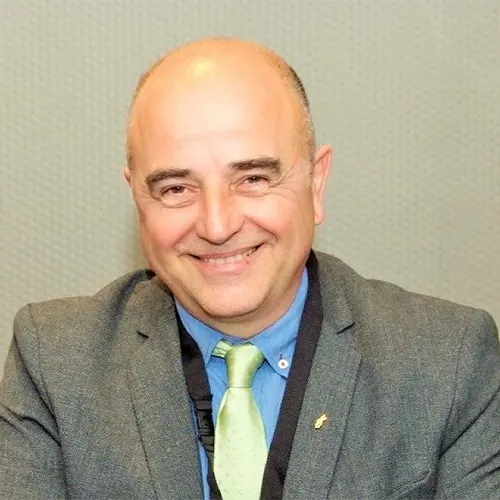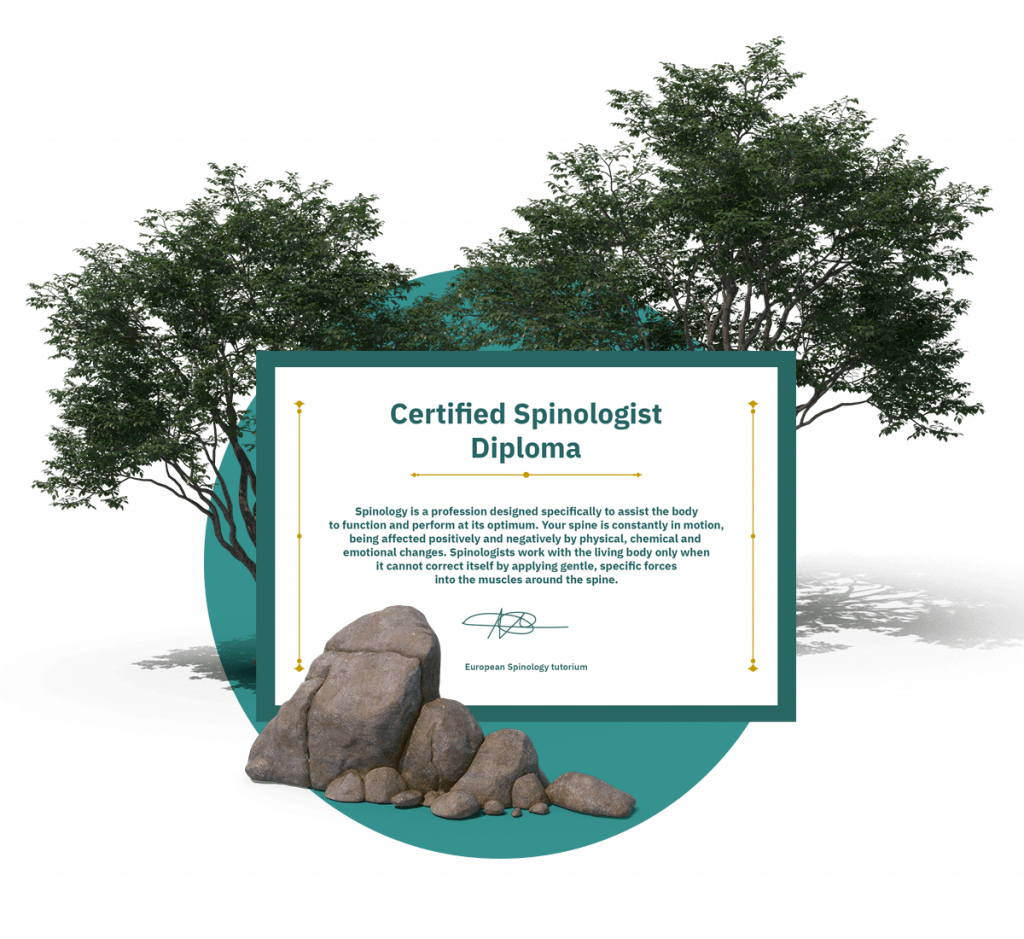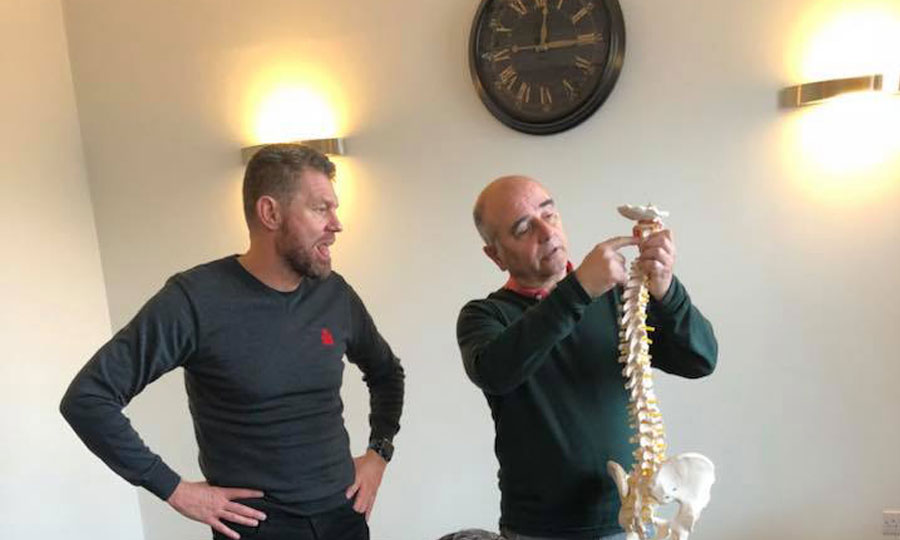Certified Spinologist Diploma
Spinology is a profession designed specifically to assist the body to function and perform at its optimum. Your spine is constantly in motion, being affected positively and negatively by physical, chemical and emotional changes. Spinologists work with the living body only when it cannot correct itself by applying gentle, specific forces into the muscles around the spine.


About the Course
Spinology is a profession designed specifically to assist the body to function and perform at its optimum. Your spine is constantly in motion, being affected positively and negatively by physical, chemical and emotional changes. Spinologists work with the living body only when it cannot correct itself by applying gentle, specific forces into the muscles around the spine.
Spinologists focus on the spine (which protects the spinal cord; responsible for all communication between the brain and the body) to ensure there is no interference with the messages that are being sent. If the communication is in any way distorted this directly affects the function and performance of the body.
Curriculum Content
The subject of Philosophy is the cornerstone of the training program and the profession. It is “that something” that gives Spinology its vitalistic characteristic.
The study of life in its broadest sense is the objective here. Knowledge of natural laws and cycles, combined with our own principles, provides the necessary perspective to understand why we, spinologists, do what we do.
The subject focuses on the study of the specific knowledge of the human body which all spinologist should master in order to work safely with his/her practice members. A special emphasis is placed on the spinal biodynamics (osteology, arthrology, myology and connective of the spine).
lso crucial is the study of the nervous system and its relationship to the whole body, as well as an in-depth study of the concept of “spinal occlusion” and the pathologies that could be an obstacle to the application of the Spinology technique.
This practical subject can be defined as “the art of locating and analysing spinal occlusions by hands only. Contents of this part of the training program are: theory of the technique and the progressive training on our manual Spinology techniques. Specificity as a rule; quality rather than quantity; and gentleness are its main features. All classes are, obviously, supervised by the technique staff of the Tutorium.
This subject aims the prospective spinologist to be able to effectively convey the concept of the profession and, consequently, to have a successful career. Areas like communications, business management, office procedure of a private Spinology Centre and marketing and promotion, assets to practice successfully as a Certified Spinologist.
The professional application of all the knowledge and technique gained along the course to the real working scenario. To provide an opportunity for the student to demonstrate his/her capability to start and manage a successful Spinology practice. Practorium can be done at the school facilities or at accredited spinologists offices.
End of course research written essay. Research and deepening on some subject related to the study and practice of Spinology.
Our other Courses

Master in Spinology for DCs
Spinology is a classical technique used by Reggie Gold in chiropractic's golden age, before the complexities of insurance.

Optimizing Spinology Seminars
Offers regular seminars for every spinologist to help optimize their Spinology practice and to provide constant support.

Spinology Conventions
The holding of Spinology conventions takes place biannually. It is an opportunity for enrichment and fraternity among colleagues.
Interesting Questions
Yes, actually, we have a blended learning course. It is a different type of learning Spinology, using e – learning for the theoretical part of the training program, and having intensive onsite seminars.
The practice of Spinology is a skill, which must be learned by regular hands – on – training, and practice. This crucial component of the program requires intensive classroom seminars announced promptly in the website of the school www.spinologia.eu
Absolutely, not. Spinology requires skill and sensitivity, not brute strength.
It therefore offers exceptional career opportunities to both men and women, regardless of their physical stature.
Certain handicaps may prevent one from becoming a Spinologist, while others such as blindness or loss of lower body control may not be a problem at all.
Therefore, each situation will be evaluated individually.
We are not interested in making comparisons, but rather, in training each individual to become the best Spinologist she or he can become.
We, therefore, have only two grades: ready-to-continue, or not-yet-ready-tocontinue. Each individual thus proceeds at his or her own pace until each stage is mastered before moving on to the next.
New groups start twic
Opportunities for Certified Spinologists are excellent! Graduates are expected to enter private practice, either alone or in association with other Spinologists.
Income potential will be determined by the same intangible of skill, personality and willingness to work that determine the success of any other professional practice.
While the success level of any graduate is largely determined by the individual, specific subjects are directed toward success training, motivation and good, sound, ethical business procedures.
Additionally, plans are being developed for national advertising campaigns to stimulate public demand for Spinology services.
Consistent with our philosophy, our policy is to open our doors to all who have, or are able to develop, the necessary aptitudes regardless of prior educational background. We do not want to exclude any capable person because of lack of such background. Furthermore, we are not satisfied that any combination of aptitude or achievement tests scores can predict performance. Reliance upon such scores might permit some good test-takers to be accepted, and some good future Spinologists to be rejected.
Such intangibles as interest, enthusiasm and sensitivity are of paramount importance. Therefore, we have chosen to use the first three modules of the training program itself as a screening procedure. In this way, school and enrolee may appraise and evaluate each other. If either the enrolee or the school decides termination of training, tuition fees will be refunded in accordance to the policy stated previously.
To our knowledge, no regulations exist in Europe or elsewhere to restrict the practice of Spinology. In Spain, for instance, the profession has started satisfactorily its protocol towards regulation. Eventually, Irish Spinologists will follow the same path. In other countries of Europe, it is just a matter of adapting the practice of Spinology to their regulations without jeopardizing the philosophy of the profession. The U.S. has stated laws that differ greatly. Each state has a governing body to make specific decisions in such areas. The fact
that Spinology does not offer a service as a healing art facilitates the task everywhere.
Enrique Borredá
Certified Spinologist, graduated from the Philadelphia Spinal Tutorium in 1981.
Principal of the European Spinology Tutorium.
President of the Spinology World Council.
TEACHING STAFF
Ján Beytell
Michael D. Meyer
Jonathan Kelly
Michelle Fogarty
Specialist Teaching Staff:
Other professionals are brought in to present in areas such as marketing, business principles, communications and legal issues.
See the information regarding the staff below.
